It is easy to understand the desire to empower the security forces after a terrorist attack, write Sharan Grewal and Shadi Hamid. But such an approach would be counterproductive. This piece originally appeared in the Washington Post.
On Oct. 29, a 30-year-old Tunisian woman blew herself up on Avenue Bourguiba, the iconic boulevard in downtown Tunis. The “very primitive” suicide bombing reportedly targeted police officers, who made up 15 of the 20 injured. The bombing was the first terrorist attack in Tunisia’s capital since 2015.
The Tunisian authorities responded by doubling down on a coercive approach to fighting terrorism. Hours after the bombing, the president of the Tunisian parliament proposed accelerating consideration of a bill that would grant the security forces a freer hand in their operations. The bill, titled “Rejection of Assaults against the Armed Forces,” is framed as protecting security forces from attacks. But it could also silence criticism of their conduct by criminalizing “denigration” of the armed forces and the publication of any national security-related “information, data, or documents” by journalists or whistleblowers. Another section authorizes the use of lethal force against protesters not only in self-defense but also in the defense of property or public order. It is little surprise that the bill has been slammed by human rights watchdogs as “reinforcing a culture of impunity.”
Terrorist attacks often lead governments to enhance police powers in the name of security, and Tunisia is no exception. In 2015, after a mass shooting at a beach resort in Sousse, the Tunisian parliament passed a counterterrorism law that allows authorities to detain terrorism suspects without charges and without a lawyer for 15 days. In 2017, after the killing of a traffic cop, police unions lobbied parliament to adopt the Rejection of Assaults bill, threatening to stop providing security for political party leaders if they did not. While the bill was pulled under domestic and international criticism, it is now back on the agenda after Monday’s attack. While democracies are often prone to overreach after terrorist attacks, the vagueness of the bill—with references to the all-encompassing “public order”—is more reminiscent of the very Arab authoritarian regimes that democratic Tunisia aspires to surpass.
Tunisia today needs to resist the urge to grant security forces an even freer hand in countering terrorism. Since 2013, police tactics have become increasingly heavy-handed, especially toward Tunisians who appear to be Salafis, such as men with long beards. The World Organization against Torture reported 631 cases of torture in Tunisia between 2013 and 2016, while Amnesty International has highlighted excessive use of force and arbitrary travel restrictions, often imposed “in a discriminatory manner based on appearance, religious practices or previous criminal convictions.”
Such police abuse is a cause of terrorism in Tunisia, not a solution. A 2018 study by the Tunisian Institute for Strategic Studies, which interviewed 83 terrorists in Tunisian prisons, found that 90 percent of them had been radicalized through state repression. Many “identified the post-2013 state restrictions on Salafi practices and organizations in Tunisia as seminal propellants driving them toward radicalization and political violence.
One need not look further than this week’s suicide bombing to see how a bill facilitating police abuse would be counterproductive. Although her precise motivations are unknown, the details hint at frustration with police brutality. The bomber targeted police officers and moments before was seen in a demonstration for Aymen Othmani, a young man who was shot and killed by customs agents last week.
The proposed 2019 state budget prioritizes increasing the budgets of the ministries for economic development, employment and industry in lieu of the Ministry of the Interior, which Tunisia deserves credit for. Reversing those priorities in the wake of Monday’s attack would be a mistake and a signal that Tunisia’s democratic backsliding represents something more serious. Unemployment, underdevelopment and the dignity deficit that results remain contributors to extremism in Tunisia. Monday’s bomber had received a bachelor’s degree in business English but could not find employment for four years other than occasional work as a shepherdess. It is plausible that unfulfilled economic aspirations may have contributed to her willingness to commit suicide.
It is easy to understand the desire to empower the security forces after a terrorist attack. But such an approach would be counterproductive, particularly at a time when Tunisia already finds itself vulnerable to strongman appeals. According to the 2018 Afrobarometer survey, 47 percent of Tunisians approve or strongly approve of military rule. Tunisia, as one of the Middle East’s only democracies, must remain vigilant in protecting its democratic gains, particularly when there is no evidence that undoing them would actually help fight terrorism. Tunisia would be better off responding to the attack with security-sector reform and more, not less, oversight of police misconduct. This would be in line with Tunisia’s democratic aspirations and would also help temper one of the major grievances that, too often, seems to push some Tunisians one step closer to violence.
The Brookings Institution is committed to quality, independence, and impact.
We are supported by a diverse array of funders. In line with our values and policies, each Brookings publication represents the sole views of its author(s).

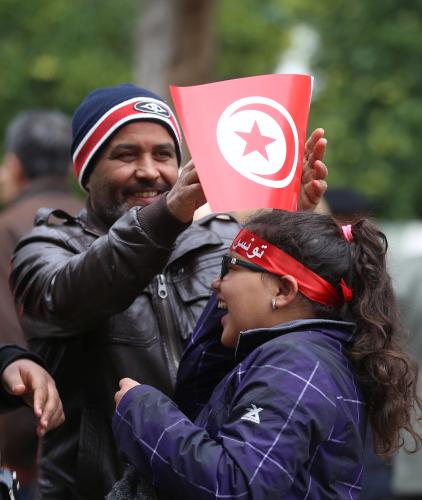
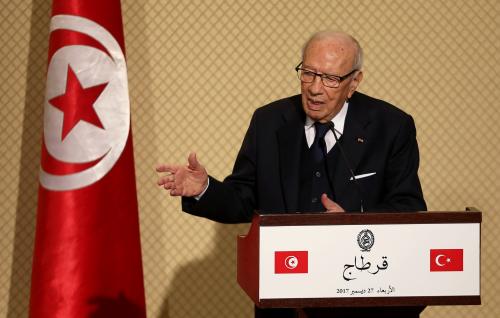


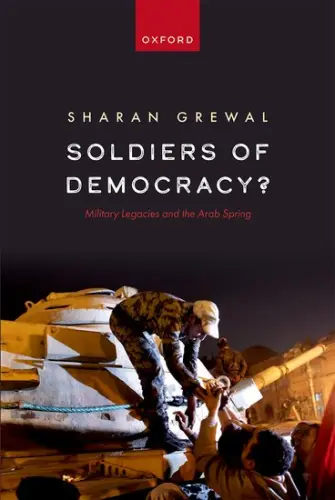
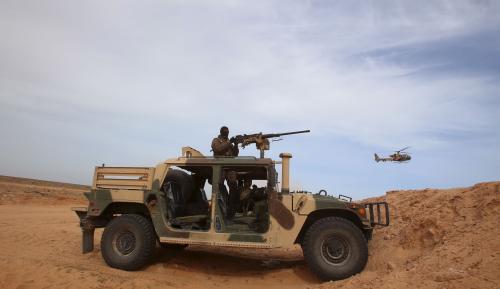
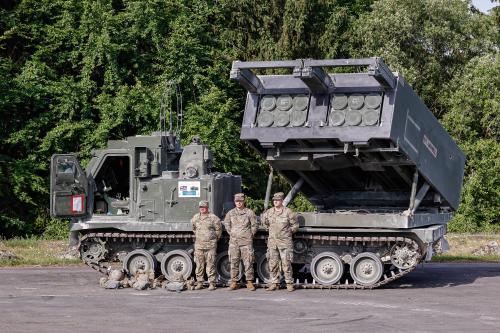
Commentary
Democratic Tunisia is taking the wrong path in the fight against terrorism
November 4, 2018